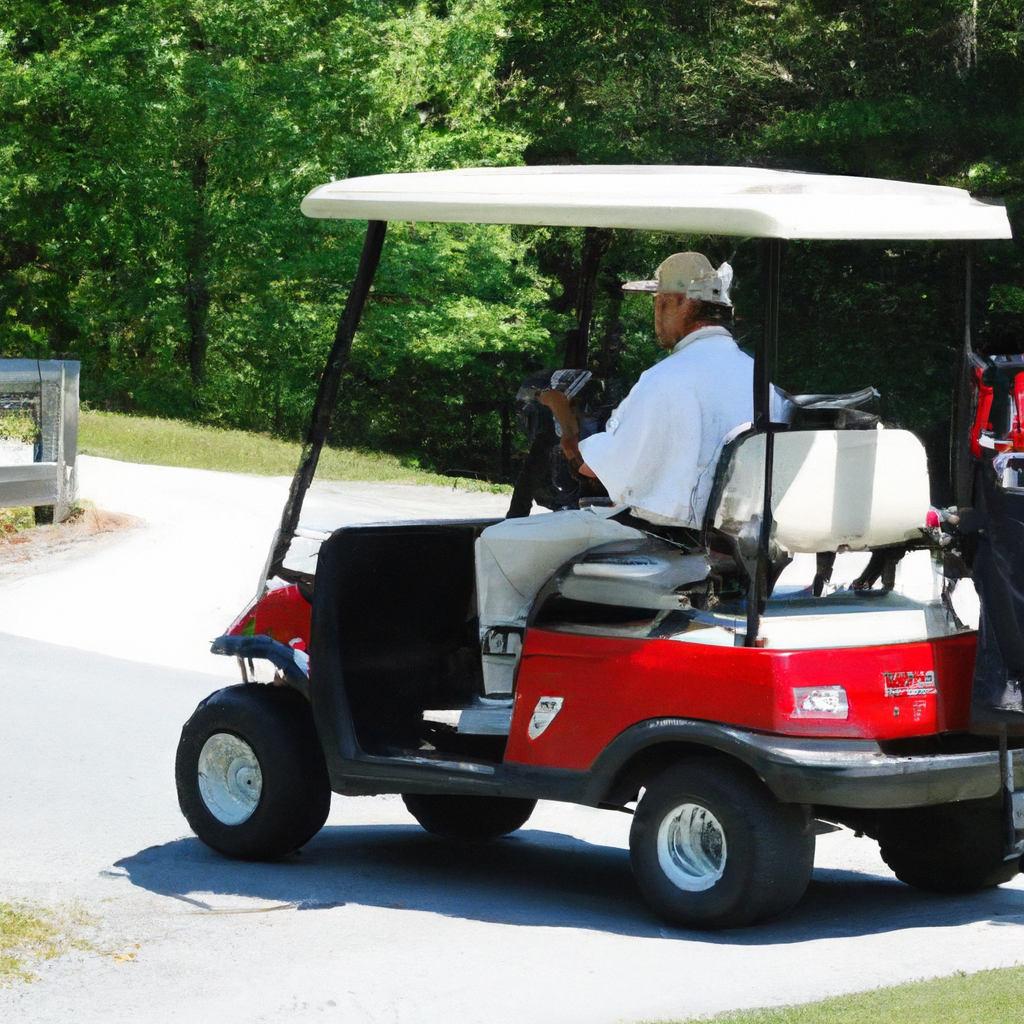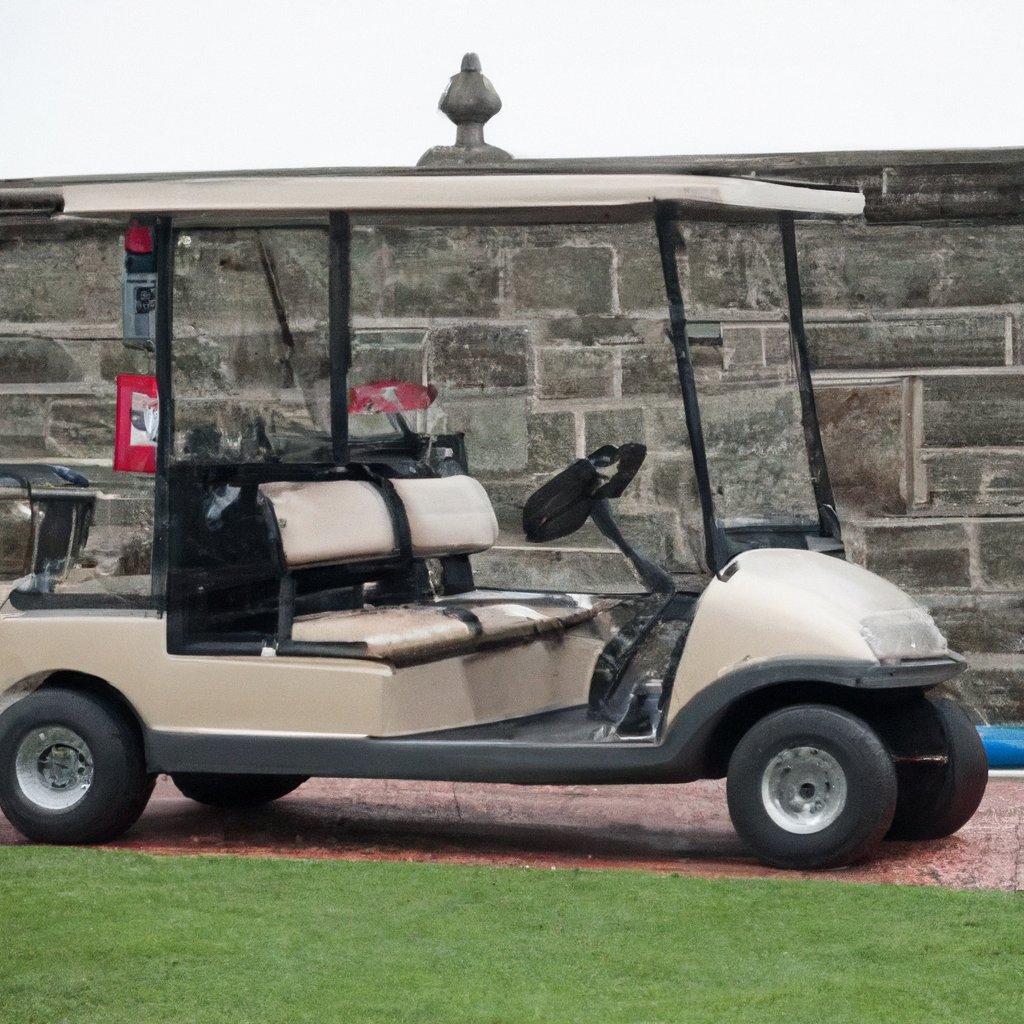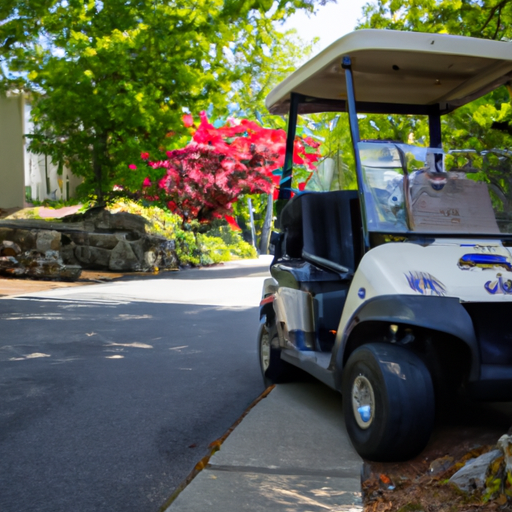Have you ever wondered if golf carts are street legal in Pennsylvania? Well, look no further, because in this article we will explore the regulations and requirements for driving golf carts on public roads in the state. Whether you’re a golf enthusiast looking for a convenient mode of transportation or simply curious about the legality of these vehicles, we’ve got you covered. So, let’s dive into the fascinating world of golf carts on Pennsylvania streets and discover what is allowed and what isn’t.

What is a Golf Cart?
Golf carts are small, motorized vehicles that are primarily designed for use on golf courses. However, they have evolved beyond their original purpose and are now commonly used in various settings such as gated communities, resorts, and even on the streets in some areas. These compact vehicles offer a convenient and eco-friendly mode of transportation for short distances. Let’s explore the definition, typical features, and uses of golf carts in more detail.
Definition
A golf cart is a small, four-wheeled vehicle that is electrically powered or gas-powered. It typically has a seating capacity for two to four passengers, although there are models with larger seating capacities available. Golf carts are designed with a compact frame and low maximum speed, making them suitable for navigating narrow paths and low-traffic areas.
Typical Features
Golf carts typically feature an open-air design, with a simple frame and a roof to provide shade. They have a forward and reverse gear, as well as hand-operated brakes. The steering is usually a simple rack-and-pinion system, allowing for easy maneuverability. Most golf carts come equipped with a battery or gas-powered engine and have headlights and taillights for visibility during nighttime use.
Uses
While golf carts were originally intended for use on golf courses, their versatility has led to them being utilized in various settings. In addition to golf courses, you can often find golf carts in gated communities, resorts, airports, and industrial complexes. They are commonly used for short-distance transportation, such as cruising around a neighborhood, running errands, or commuting within a limited area.
Street Legal Requirements for Golf Carts
If you are considering using your golf cart on the streets of Pennsylvania, it’s crucial to understand the street legal requirements imposed by the state. Let’s delve into the laws and regulations concerning registration, title, and insurance.
Pennsylvania Laws
In Pennsylvania, golf carts are considered “Low-Speed Vehicles” (LSVs) when modified to comply with specific requirements. To legally operate a golf cart on public roads in Pennsylvania, it must meet the necessary safety standards and be equipped with the appropriate safety equipment, as specified by the state’s laws.
Registration and Title
To make your golf cart street legal in Pennsylvania, you must register it with the Pennsylvania Department of Transportation (PennDOT). This involves completing an application, paying the required fees, and obtaining a valid registration plate, which must be affixed to the rear of the vehicle. Additionally, you will need to obtain a title for your golf cart, which establishes legal ownership.
Insurance Requirements
Just like any other motor vehicle, street-legal golf carts in Pennsylvania are required to have liability insurance coverage. This insurance provides financial protection in the event of accidents or injury caused by the golf cart. It is important to consult with your insurance provider to determine the appropriate coverage for your street-legal golf cart.
Design and Equipment Regulations
Street-legal golf carts in Pennsylvania must meet specific design and equipment regulations to ensure safe operation on public roads. Let’s explore the requirements concerning seat belts, lights and signals, as well as speed limitations.
Seat Belts
To comply with Pennsylvania’s regulations, golf carts must be equipped with seat belts for all passengers. It is essential to ensure that the seat belts are properly installed and functioning correctly to provide maximum safety in the event of a collision or sudden stop.
Lights and Signals
Street-legal golf carts in Pennsylvania must be equipped with the appropriate lights and signals to ensure visibility on the road. This includes headlights, taillights, brake lights, turn signals, and reflectors. These lighting features are crucial for alerting other motorists to the presence and intentions of the golf cart, especially during nighttime operation.
Speed Limitations
To be eligible for street legal operation, golf carts in Pennsylvania must have a maximum speed limitation. Generally, the maximum speed allowed for golf carts on public roads is limited to a maximum of 25 mph. This speed restriction ensures the safety of both the golf cart occupants and other road users.

Operating Rules for Golf Carts
While it may be exciting to drive your street-legal golf cart on Pennsylvania roads, it’s essential to adhere to specific operating rules to ensure the safety of yourself and others. Here are some considerations regarding age restrictions, occupancy limits, and operating on roads.
Age Restrictions
To operate a street-legal golf cart in Pennsylvania, you must be at least 16 years of age and hold a valid driver’s license. It is crucial to comply with this age restriction to ensure you have the necessary knowledge and experience to safely operate the golf cart on public roads.
Occupancy Limits
Pennsylvania has specific occupancy limits for street-legal golf carts based on the manufacturer’s specifications. Typically, golf carts are designed for a maximum of two to four passengers, depending on the model. It is crucial to adhere to the designated occupancy limits to maintain the stability and safety of the golf cart while in motion.
Operating on Roads
When operating a street-legal golf cart in Pennsylvania, it is important to follow the same rules of the road as other motor vehicles. This includes obeying traffic signals and signs, yielding to pedestrians, using turn signals when changing lanes or making turns, and maintaining a safe distance from other vehicles. By adhering to these rules, you contribute to a safer and more harmonious roadway environment.
Safety Considerations
Safety should always be a top priority when operating any vehicle, including street-legal golf carts. Let’s explore some essential safety considerations regarding visibility, maintenance and inspections, as well as driving precautions.
Visibility
To maximize visibility and ensure safe operation, it is important to keep your street-legal golf cart well-maintained. Regularly clean the headlights, taillights, and turn signals to ensure they are free from dirt or debris that could reduce visibility. Additionally, be mindful of blind spots and always use mirrors when changing lanes or reversing.
Maintenance and Inspections
Routine maintenance is crucial for the safe operation of your street-legal golf cart. Ensure that your golf cart receives regular inspections, including brake checks, tire pressure checks, and battery maintenance. Regularly inspect the seat belts, lights, and signals to ensure they are in proper working order.
Driving Precautions
When operating a street-legal golf cart, it is important to exercise caution and employ safe driving practices. Always obey the posted speed limits and avoid speeding. Be aware of your surroundings, especially in high-traffic areas, and be prepared to yield to larger, faster-moving vehicles. Additionally, avoid distractions such as cell phones and always keep both hands on the steering wheel.
Benefits of Street Legal Golf Carts
Street-legal golf carts offer numerous benefits to both individuals and the environment. Let’s explore some of the advantages of using these vehicles for short-distance transportation.
Eco-Friendly
Unlike traditional cars or motorcycles, street-legal golf carts are eco-friendly options for commuting shorter distances. They significantly reduce carbon emissions and contribute to a cleaner and greener environment. By choosing a street-legal golf cart, you are actively helping to reduce air pollution and combat climate change.
Convenience and Accessibility
Street-legal golf carts provide a convenient and accessible mode of transportation, especially in areas with limited parking or heavy traffic. With their compact size and maneuverability, golf carts can navigate through tight spaces and reach destinations that may be challenging for larger vehicles. They are particularly useful for short trips to nearby stores, recreational areas, or neighbors’ houses.
Cost Savings
Using a street-legal golf cart can result in significant cost savings. These vehicles consume less energy compared to traditional automobiles, meaning you’ll spend less on fuel or electricity. Moreover, maintenance costs for golf carts are generally lower than those for cars, as they have simpler mechanical systems. Additionally, some areas offer reduced registration fees for street-legal golf carts, resulting in further savings.
Golf Carts vs. Low-Speed Vehicles
Although golf carts and low-speed vehicles (LSVs) share some similarities, it’s essential to understand the differences in terms of regulations, benefits, and limitations.
Differences in Regulations
While both golf carts and LSVs are small, electric or gas-powered vehicles, they differ in their legal requirements. LSVs are more specifically designed for on-road use and are subject to stricter regulations than golf carts. LSVs typically have additional safety features such as windshields, mirrors, and enhanced lighting systems to comply with specific highway safety standards.
Benefits and Limitations
LSVs offer increased speed capabilities compared to golf carts, allowing for safer operation on roadways with higher speed limits. They often have greater seating capacities and enhanced features such as seat belts, airbags, and additional storage space. However, these additional features come at a higher cost compared to golf carts. Golf carts, on the other hand, are more budget-friendly alternatives and can still provide efficient short-distance transportation.
Where Can You Drive Street Legal Golf Carts?
After obtaining street-legal status for your golf cart, you may be wondering where you can legally drive it. Let’s explore the permitted locations and areas where street-legal golf carts are commonly used.
City Streets
Street-legal golf carts can be driven on designated city streets with posted speed limits that are compatible with the maximum speed capabilities of the golf cart. However, it is important to familiarize yourself with local regulations regarding specific roadways or areas where golf carts may be prohibited.
Designated Areas
Many communities, resorts, and recreational facilities have designated areas where street-legal golf carts are allowed. These areas often have lower speed limits, creating a safer environment for golf cart users. Always adhere to any posted signage or guidelines specific to the designated areas.
Private Property
Street-legal golf carts can also be used on private property, such as gated communities or industrial complexes. However, it is important to obtain permission from the property owners or homeowners associations before operating your golf cart on their premises. Be mindful of any specific rules or restrictions that may be in place.
Local Regulations and Ordinances
In addition to Pennsylvania state laws, local regulations and ordinances may apply to the operation of street-legal golf carts. It is important to familiarize yourself with any applicable county or municipal regulations to ensure compliance. Let’s discuss some factors to consider regarding local regulations.
County Regulations
Different counties in Pennsylvania may have specific regulations or ordinances pertaining to the operation of street-legal golf carts. These could include limitations on operating hours, restricted areas, or additional safety requirements. Contact the local county office or check their website for more information regarding county-specific regulations.
Municipal Ordinances
Municipalities within Pennsylvania may also have their own ordinances that govern the operation of street-legal golf carts. It is crucial to research and understand any local rules or restrictions. This information can often be obtained from the municipality’s website or by contacting the local authorities directly.
Resources for More Information
If you have further inquiries or need additional information regarding street-legal golf carts in Pennsylvania, various resources are available to assist you. Consider utilizing the following sources for reliable and up-to-date information:
Pennsylvania Department of Transportation
The Pennsylvania Department of Transportation (PennDOT) is a valuable resource when it comes to understanding the laws and requirements for street-legal golf carts. Their website provides comprehensive information, forms, and contact details to help answer any questions you may have.
Local Authorities
Local authorities, such as police departments or county offices, can provide specific information regarding local regulations, permits, and restrictions. Reach out to your local authorities for any inquiries related to operating street-legal golf carts in your area.
Golf Cart Dealerships
Golf cart dealerships are experts in the field and can provide valuable insights and guidance when it comes to street-legal golf carts. They can help you select a suitable model, provide information on modifications required for street-legal operation, and assist with the necessary paperwork.
By utilizing these resources, you can ensure that you are well-informed and equipped to navigate the streets of Pennsylvania with your street-legal golf cart confidently.
In conclusion, with the proper modifications and adherence to Pennsylvania’s street legal requirements, golf carts can indeed be street legal in the state. By familiarizing yourself with the laws, regulations, and safety considerations outlined in this article, you can enjoy the convenience, cost savings, and eco-friendliness that street-legal golf carts offer. Remember to always prioritize safety, follow the rules of the road, and stay informed about local regulations to have a pleasant and enjoyable experience with your street-legal golf cart in Pennsylvania.
